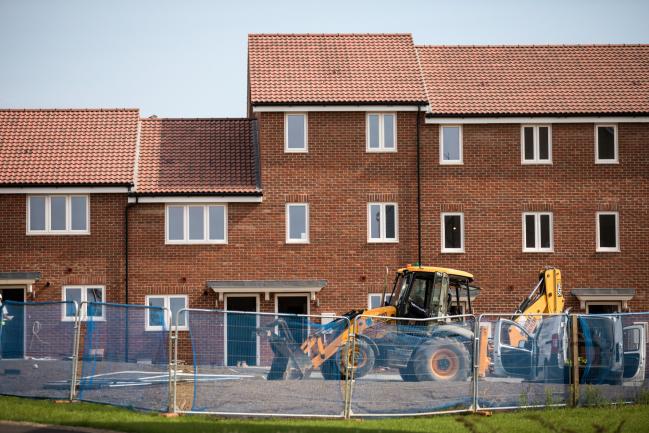(Bloomberg) -- The toll Brexit is taking on the U.K. housing market was laid bare in surveys published Monday.
Asking prices fell for a second month in December, recording the steepest back-to-back declines since 2012, Rightmove said. Acadata meanwhile reported that actual selling prices grew at their slowest annual pace in over 6 1/2 years in November.
“Overall the market is going nowhere very fast, with the main driver of this remaining Brexit-induced uncertainty,” Acadata Chairman Peter Williams (NYSE:WMB) and John Tindale, a housing analyst at the firm, said in a statement. “We are about to enter the seasonal lull generated by Christmas and the New Year, so we should certainly not expect a big bounce back.”
Average home prices rose just 0.9 percent to 305,522 pounds ($384,000) compared with November 2017, the smallest annual increase since April 2012, Acadata said.
Rightmove said the price of property put up for sale has fallen by 3.2 percent over the past two months, leaving asking prices almost 10,000 pounds lower on average than in October. In London, 19 percent fewer properties came to market this month than a year earlier.
Silver Lining
Fears that Britain could crash out of the EU without a deal in March have hit the housing market at a time when affordability was already stretched, particularly in London. Prime Minister Theresa May is struggling to get parliamentary backing for her deal and there little sign that the EU is prepared to offer sufficient concession to break the stalemate.
There were some silver linings amid the housing-market gloom. According to Rightmove, sales agreed by agents fell by “a relatively marginal” 2.1 percent annually, a sign bargain hunters are looking for deals. Acadata too reported renewed buyer interest, with transactions at the highest for any November in three years.
In another sign that Brexit is making Britons cautious, a separate report from Visa (NYSE:V) and IHS Markit showed household spending fell for a second consecutive month in November. Expenditure on food and beverages, as well as clothing and footwear, dropped.
